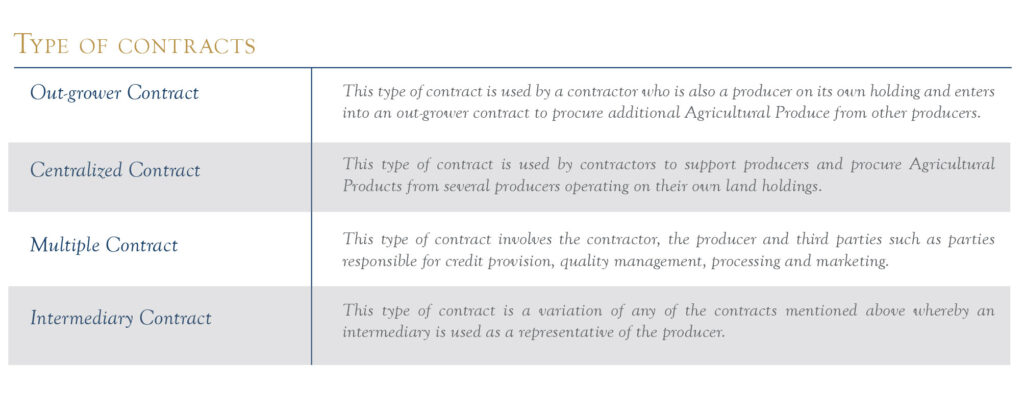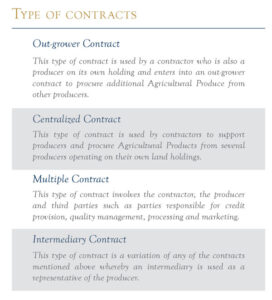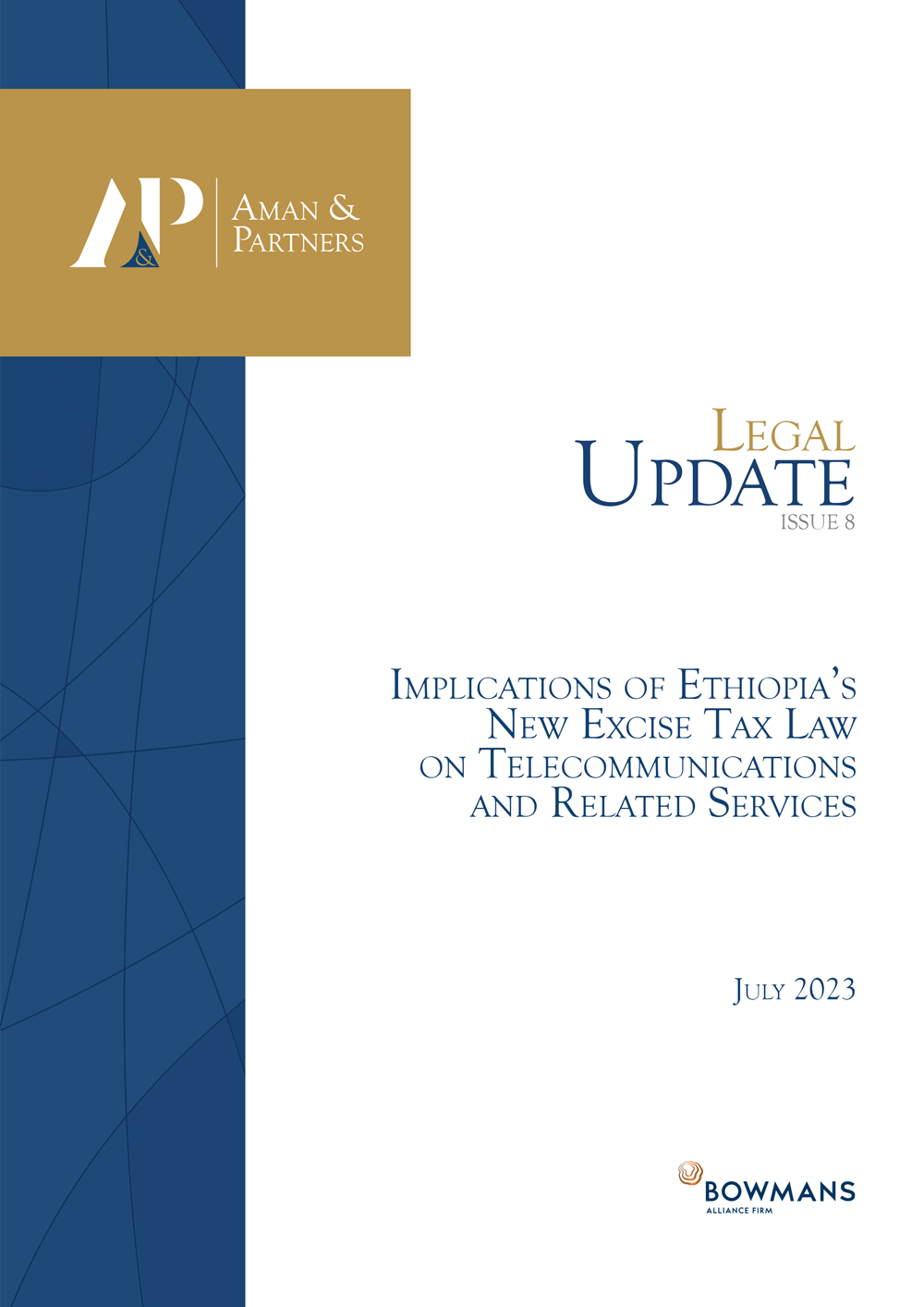The Legal Regime Governing Contract Farming in Ethiopia
The special nature of agricultural production contracts has led various jurisdictions to opt for the designation of special legislation that governs such contracts. Such legislation aims to restrict unfair practices and protect the rights of producers. In the context of Ethiopia, the1960 Civil Code (Civil Code) has specific sections on contracts for agricultural work, contracts for sale of cattle as well as fungible goods. However, these sections do not address all the nuances of contracts pertaining to production of crops and livestock under the scheme of contract farming as well as the relationship between the producers and the contractor. As such, the promulgation of a separate law governing agricultural production has been overdue.
Against this backdrop, the Agricultural Production Contract Proclamation No. 1289/2023 (the Proclamation) has been issued in July 2023. The Proclamation generally regulates the relationship between contractors, producers and third parties with regards to the production and sale of plants, animals, fish, animal feed or seed in the raw or processed form (Agricultural Produce). Though the provisions of the Civil Code remain applicable on some of the matters governing contract farming, the Proclamation and the upcoming subsidiary legislation take precedence over matters pertaining to agricultural production contracts.
Nature and Types of Agricultural Production Contracts
The Proclamation defines an agricultural production contract as an agreement between a contractor and a producer with regards to the supply of Agricultural Produce. Any person with relevant business license may qualify as a contractor in the context of agricultural production contracts. A producer on the other side is a person who has his/her/its own holding or rents farms to produce Agricultural Products.
The Proclamation identifies 4 types of agricultural production contracts (i) Out-grower Contract, (ii) Centralized Contract, (iii) Multipartite Contract and (iv) Intermediary Contract.
The differences between the contracts are described as follows:


Formation of Agricultural Production Contracts
An agricultural production contract is required to be in writing, authenticated and include the working language of the regional state. The Proclamation outlines the rights and obligations of the parties to the contract. Among the obligations of the contractor are a duty to be duly registered and licensed trader, a cooperative or public enterprise. In terms of the rights of the parties to the contract, the contractor has a right to visit the farm and follow up on the production process whereas the producer has a right to get technical training and advisory service from the contractor.
The parties to the contracts may not transfer their obligations in the contract unless the other party gives consent and the Ministry of Agriculture or relevant regional organ registers such transfer (Appropriate Authority).
Furthermore, the parties to the contract should fulfill the following mandatory provision of the law when entering into and implementing contracts:
- Quantity and Quality of the Agricultural Products – The agricultural production contract is expected to define (i) units of measurement; (ii) verification mechanism of measuring quality standards; and (iii) standards for packaging and labeling. The agricultural production contract should also outline phenomena that may cause underproduction, overproduction, or deviation from the agreed quality standards as well as the effect of such events on the contract.
- Supply of Input – Inputs required for the Agricultural Produce may be supplied by the contractor or the producer. If the input is supplied by the contractor, the price of the inputs is required to be specified in the contract. Furthermore, the price of the input to be supplied by the contractor may not be more than the price of the same/similar input in the local market at the time of delivery. Alternatively, the contractor may pay the producer in cash or in any other mode of payment an advance for the producer to purchase input for the Agricultural Produce.
- Terms of payment – An agricultural production contract is required to provide a breakdown of the total/unit price of the Agricultural Produce, cost of production and other related costs. Given the nature of the market for Agricultural Produce, the basis for price revision due to an increase or decrease in quality is required to be stated in the contract.
- Force Majeure – In the context of non-performance of contracts, the Civil Code identifies limited instances that may constitute a case of force majeure. The Proclamation has identified additional phenomena such as serious illness of the producers and extreme animal or crop disease or pest outbreaks that may qualify as force majeure events. The instances listed in the Proclamation will qualify as a force majeure event provided that the phenomena has prevented the producers from undertaking their obligation and (i) both parties agree or (ii) the event is verified by the Appropriate Authority. Furthermore, the parties are at liberty to specify other events that may constitute force majeure.
- Dispute Resolution – If a dispute is to arise between the parties, the Proclamation provides that the dispute resolution mechanism should be through (i) negotiation, (ii) if the negotiation fails, through mediation or arbitration and (iii) if the dispute is not resolved through mediation or arbitration, through a court with appropriate jurisdiction. The dispute resolution mechanism as outlined in the Proclamation lacks clarity on whether all (i), (ii) and (iii) stated above dispute settlement mechanisms are compulsory, the required duration for negotiation/mediation and the finality of arbitration awards. Consequently, the interpretation and application of this provision is yet to be tested.
The Proclamation envisages the promulgation of subsidiary laws for the implementation of contract farming. Among the issues expected to be governed by upcoming subsidiary legislation includes details of the requirements for being licensed and types of incentives to be granted (such as market linkage, tax holiday and farm machinery support for parties) to those who engage in contract farming.
Concluding Remarks
A new legal framework that caters for the specific needs of agricultural production contract is enacted. Contracting parties are thus required to adhere to the contract formation, variation, and termination requirements of the Proclamation. Further, as the Proclamation envisages the enactment of subsidiary laws on some issues, businesses (particularly those that largely rely on Agricultural Produce as an input for production of goods, such as the Fast-Moving Consumer Goods industry), will have to give due attention to the upcoming developments in relation to the promulgation of subsidiary laws and their implementation.
Disclaimer
The information contained in this legal update is only for general information purposes. Nothing herein shall be considered and relied upon as a legal advice or a substitute thereto.





